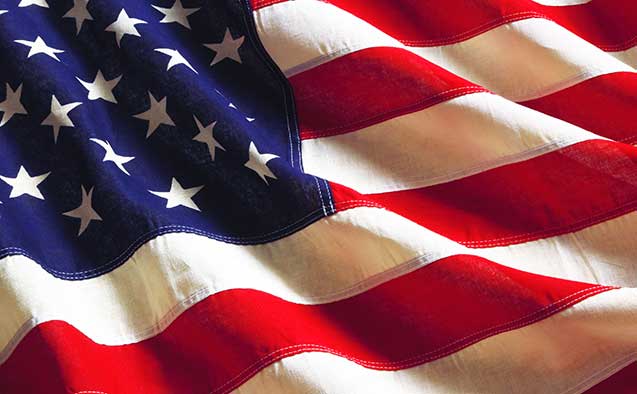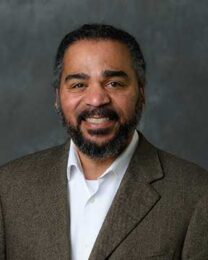High stakes: WFU expert previews first 2024 presidential debate

Millions of Americans are expected to watch the first 2024 presidential debate between President Joe Biden and former President Donald Trump. In this Q&A, Wake Forest University associate teaching professor Nate French, an expert on political communication, explains how this first presidential debate differs from first debates in past elections and why the stakes are so high for both parties.
Will the early debate help or hurt the candidates?
The timing of the debate is important to note. The Republican and Democratic conventions will take place later this summer, so neither candidate has been officially nominated by their party. Both Biden and Trump will officially accept their party’s nominations at their conventions.
Having an early debate is probably advantageous for Biden, and it is something that his campaign wanted. Though many people will say the election doesn’t start till after Labor Day, Biden can’t afford to wait if he wants to reach voters who don’t think his vision for America is working for them.
What are the risks and rewards of this debate?
This debate is a risk for both candidates. Both men are older, 81 and 78 respectively. Both tend to move off-topic when speaking. It will be challenging for the candidates to stand on the stage and remain focused for 90 minutes. However, the new debate rules will keep more focus on the issues and that will stick with viewers. People are busy these days with life, work and family. They are going to trust their gut feelings and first impressions.
This moment is crucial for both Biden and Trump. The debate will open the gate for the upcoming election with wall to wall coverage across the board and on every social media platform. If you haven’t been paying attention, you’ll pay attention now.
What are the ground rules for this debate?

Dr. Nate French, associate teaching professor of communication at Wake Forest University.
The ground rules are a stark contrast from the 2020 showdown between the two.
Biden and Trump mutually agreed on a set of rules and conditions. There will be no live audience. Mics will be muted when the candidates aren’t speaking, and they can’t use props or pre-written notes. There are no opening statements, and interaction with campaign staff during the debate will be limited. The format will allow moderators, CNN hosts Jake Tapper and Dana Bash, more control.
Viewers will have to put on their nonverbal hats and read the facial expressions and cues from the candidates. What will be interesting is, even though the mics will be shut off when the candidates aren’t speaking, individuals on stage can hear each other, so it’s possible a ‘quiet’ debate will take place.
In the end, Trump will have the final word thanks to winning a debate coin toss, although Biden won a coin flip for podium positioning, choosing the right side of the stage.
What topics are most likely to resonate with voters?
The economy is a major issue – inflation and cost of living among other factors. At this point, statistically, the economy is strong, but many individuals don’t feel that. Immigration, reproductive rights and foreign policy will also be key for voters. While foreign policy is usually not a top issue for voters, this election is different.
Both Trump and Biden will also have to address their legal baggage.
The question is not about the issues. We already know the big three are the economy, immigration and reproductive rights. Instead the debate is going to be about how the candidates try to balance these issues to win over the unaffiliated voters. That’s who they’re playing for.
Data from the North Carolina State Board of Elections shows an increase in voters who have registered as unaffiliated since the 2020 election. In North Carolina alone, more than 2.7 million people are unaffiliated, meaning these ‘independent’ voters didn’t choose a party.
How important are swing states for this election?
This election is going to come down to a very few states, and we really have to watch what used to be called the Blue Wall – Michigan, Wisconsin and Pennsylvania. That’s where the Democrats have traditionally held strong. Florida and Georgia are not swing states in my opinion. They are Republican red and Democrat blue.
North Carolina is also considered a swing state because of Mark Robinson, the Republican candidate for governor. What the stats show is that he and Josh Stein, the Democratic gubernatorial candidate, have gone back and forth in the polls. Robinson is up in the polls, and right now Trump is up in the polls. The winner of the governor’s race might be able to push their party for a win in the presidential race as well. But how this affects the election depends on who you ask in the polls and who actually shows up to vote.
You teach a class on presidential campaigns. What are you telling your students to potentially look for?
In my political communication class, we are trying to figure out the narrative that the candidates are telling. They study their messages and speeches, how candidates deploy these particular stories, and how their arguments are being presented.
Biden is still trying to tell a story of competence. Now, he’s trying to tell a story of democracy, and he’s trying to tell a story of freedom and choice. Trump is trying to tell a different story. He’s talking about American decline. He’s talking about strength and his ability to resurrect it, with that notion of, ‘I’m fighting for America.’
A lot can happen before the general election, but for each voter, it will be about what stories resonate with them, their values and how they are feeling right now. This first presidential debate will set the tone leading up to the November election. The world will be watching.
French will provide analysis during the debate Thursday night as part of a live online chat with CNN affiliate CTVNews.ca based in Toronto.
He will also join other experts in providing analysis of the presidential debate for WGHP Fox 8 in High Point on Friday between 7:30 and 9:30 a.m.
The second presidential debate is scheduled for September 10. The 2024 election will be held on November 5.
Categories: Experts
Wake Forest News
336.758.5237
media@wfu.edu
Meet the News Team
Headlines
Wake Forest in the News
Wake Forest regularly appears in media outlets around the world.




